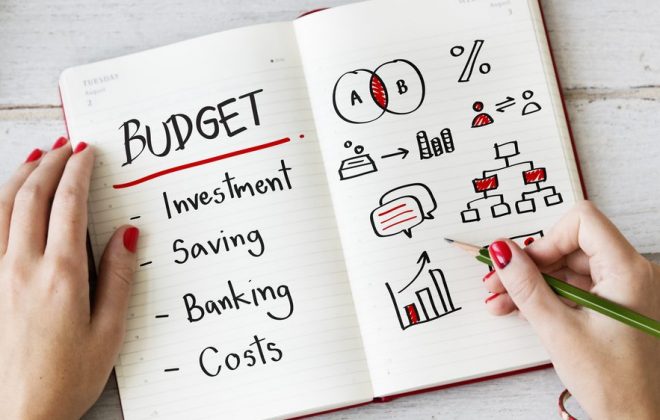5 ‘resolutions’ to help your small business finances in the new tax year
While cutting down on chocolate or hitting the gym are the classic resolutions for January 1st, have you thought about changes you’re going to make for the new tax year on the 6thof April?
The new tax year is just around the corner, so it’s a smart time to start thinking about how you’re going to change your habits when it comes to running your small business. There’s always room for improvement and so we’ve put together five ‘resolutions’ small business owners should be making to improve their finances in the new tax year.
1. Get accustomed with changes to tax
Happily for small businesses there have not been any major changes in tax legislation for the next 12 months. That said, it’s wise to get accustomed to some of the new tax rates so you’re prepared for all eventualities.
Most notably, the tax-free personal allowance has been raised to £12,500 for 2019/20, up from £11,850 – resulting in a small reduction in your tax bill of £130. What’s more, income tax rates will also be increasing. Especially if you pay yourself in dividends, knowing these new limits will be essential:
| 2018/19 | 2019/20 | |
| Personal Allowance at 0% | £11,850 | £12,500 |
| Basic rate at 20% | £11,850 – £46,350 | £12,500 – £50,000 |
| Higher rate at 40% | £46,350 – 150,000 | £50,000 – £150,000 |
| Additional rate at 45% | £150,000 + | £150,000 + |
If you run payroll, it’s worth being aware of rises in the minimum wage kicking in next year as well as increases in auto-enrolment pension payments.
2. Organise your records more effectively
Once the new tax year starts, try and find a day to sit down and reorganise your company’s records to make them more manageable. Not only will this help you find information more easily, it could even save you money. Tasks should include:
- Go paperless:There’s a huge amount of software which can store business documents at a low cost or even free in the cloud. By storing content digitally, you not only save on space and the costs of paper, you can also perform quick searches of all your records. Anything from customer information forms to invoices to signatures can be managed digitally today, meaning there’s really no reason to keep using paper.
- Assess your existing document management structure:Take a fresh look at the way you organise the documents and records you hold. Chances are you could reorganise your files and folders to make it easier to find information.
- Use more efficient software:There’s a wide range of good quality software now available that helps small businesses with everything from accounting to contract management to project planning and more. As your business scales, it’s a smart idea to begin using these kinds of tools since they speed up or even automate many time-consuming tasks.
- Have a good spring clean:Now’s the time to delete or shred any old documents you no longer need, clean up your computer’s desktop, run a virus scan and backup folders and files somewhere safe.
3. Get better at collecting receipts
As small business accountants, we’re used to receiving a shoebox full of paper receipts to process from our clients. Nonetheless, 2019/20 should be the year you start thinking of modernising how you collect receipts. Tools like Receipt Bank are a smart way of doing this. You download a smartphone app which photographs and reads all your receipts, extracts the data and adds it into your accounting systems. You’ll never forget a receipt again and that means you don’t lose out on any potential expenses to claim.
4. Do not miss tax deadlines
For Sole Traders, annual tax deadlines are pretty straightforward – as long as you remember to file and pay your taxes by 31stJanuary, there’s not too much more to worry about.
However, for owners of Limited Companies, especially those with a growing number of employees, you will have plenty more dates in your diary in order to be compliant. These include:
- Submission of P11D form: 6thJuly
- Pay second self-assessment tax instalment: 31stJuly
- Remember to pay VAT depending on when you started: quarterly
5. Review your rates and expenses in the new tax year
Feel busy at work, yet find yourself struggling to make a profit? There’s a good chance you’re not charging enough. As the new tax year begins, take some time to analyse your current price structures, tot up your expenses and work out if you need to raise your rates:
- Sit down and assess all your current client work in terms of time and money. You might find that you spend more time on work for certain clients and end up making less money. In this case, it’s time to up your rates.
- Drill into your expenses too. By looking at your outgoings you might discover that you’re paying a lot for certain products or services. Now might be a good time to think about alternatives.
- Last of all, consider investing in things which will make you more efficient. Perhaps you’re a Sole Trader. The idea of spending money on an assistant might seem like anathema, but if you can outsource some of your administrative tasks, you might find you have more time for higher paying client work.
Set yourself up for success
Running a small business is, in many ways, a lifestyle choice – so having new tax year resolutions is a good idea for making that part of your life work better and more efficiently.
Ready to learn more about small business finance? Read our eBooks on tips for managing your small business finances here.





